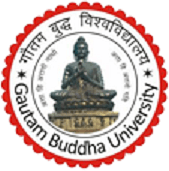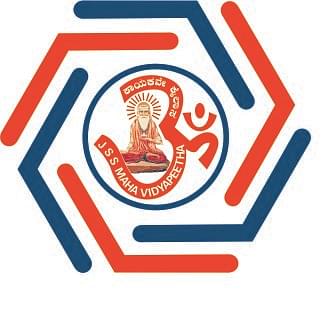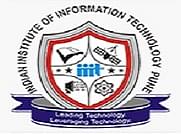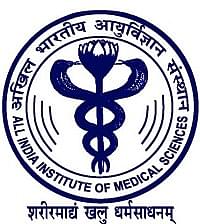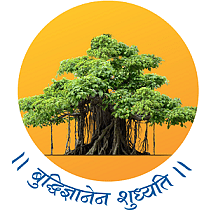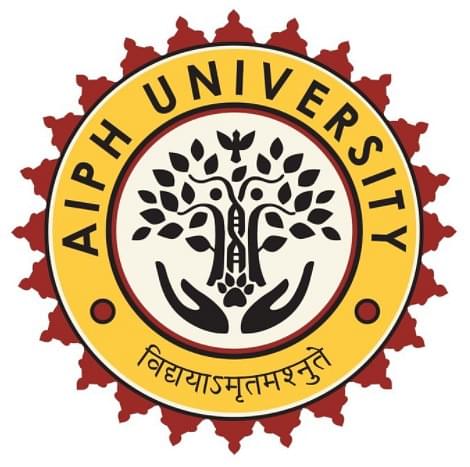Introduction
about Master of Laws (LLM)
The Master of Laws (LLM) from top affordableuniversity in India is an advanced postgraduate degree program designed for law
graduates who wish to deepen their knowledge, specialize in a specific area of
law, or pursue advanced study and research in legal theory and practice. The
LLM degree is typically pursued by individuals who already hold a Bachelor of
Laws (LLB) or equivalent law degree, although some programs may admit students
with undergraduate degrees in related fields or relevant professional
experience.
The LLM program offers a flexible and customizable
curriculum that allows students to tailor their course of study to their
academic interests, career goals, and areas of specialization within the legal
profession. LLM students have the opportunity to explore advanced topics,
engage in interdisciplinary study, and undertake independent research under the
guidance of expert faculty members and legal scholars.
Here are some key features and components of the
Master of Laws (LLM) program:
Specialization: One of the main attractions of the LLM
program is the opportunity to specialize in a specific area of law. Common
areas of specialization include international law, business law, human rights
law, environmental law, intellectual property law, taxation law, criminal law,
constitutional law, and dispute resolution. Students can choose from a wide
range of elective courses and concentration tracks to deepen their expertise in
their chosen field.
Advanced Coursework: The LLM curriculum typically
includes a combination of core courses, elective courses, seminars, and
research projects that provide advanced instruction in legal theory, doctrine,
principles, and practice. Courses may cover topics such as legal analysis,
legal research and writing, comparative law, jurisprudence, and specialized
areas of law relevant to the student's area of interest.
Interdisciplinary Study: Many LLM programs offer
opportunities for interdisciplinary study, allowing students to explore
connections between law and other disciplines such as economics, politics,
sociology, philosophy, psychology, or public policy. Interdisciplinary
coursework and collaborative research projects enhance students' understanding
of complex legal issues and broaden their intellectual perspectives.
Research and Scholarship: LLM students have
the opportunity to engage in independent research and scholarship under the guidance of
faculty mentors and legal experts. They may write a thesis, research paper, or
dissertation on a topic of interest, contribute to legal journals or
publications, or participate in research centers, institutes, or clinics
focused on specific areas of law.
Practical Experience: Some LLM programs incorporate
practical components such as internships, externships, clinical placements, or
moot court competitions to provide students with hands-on experience in legal
practice, advocacy, and professional skills development. Practical training
opportunities allow students to apply theoretical knowledge to real-world legal
issues and gain practical insights into the legal profession.
Networking and Professional Development: LLM programs often provide
networking opportunities, career counseling, and professional development
resources to help students advance their careers and establish connections
within the legal community. Students may attend guest lectures, conferences,
workshops, networking events, and alumni gatherings to meet legal
professionals, experts, and potential employers.
Flexibility and Convenience: Many LLM programs offer flexible
scheduling options, including full-time, part-time, evening, weekend, and
online formats, to accommodate the needs of working professionals,
international students, and individuals with family or other commitments.
Flexible program formats allow students to balance their academic studies with
other responsibilities and obligations.
Overall, the Master of Laws (LLM) program provides
law graduates with an opportunity to deepen their understanding of the law,
pursue advanced study in specialized areas, and advance their careers in the
legal profession. Whether students aspire to practice law, pursue academic
research, or pursue careers in government, international organizations,
nonprofits, or corporate sectors, the LLM degree offers a valuable credential
and pathway to success in the legal field.
What is
eligibilty process to take admission for Master of Laws (LLM)
The eligibility process for admission to a Master of Laws (LLM) program at top college in india can vary depending on the institution offering
the program and the specific requirements of the program itself. However, here
are some common eligibility criteria and steps involved in the admission
process for LLM programs:
·
Educational
Qualifications:
·
Most LLM programs require
applicants to have completed a Bachelor of Laws (LLB) degree or an equivalent
law degree from a recognized institution. Some programs may also accept
applicants with undergraduate degrees in related fields or relevant professional
experience in lieu of an LLB.
·
Academic
Performance:
·
Applicants are typically required
to demonstrate strong academic performance in their undergraduate or law school
studies, including a satisfactory grade point average (GPA) or equivalent
academic standing. Some LLM programs may have specific GPA requirements for
admission.
·
English
Language Proficiency:
·
Since many LLM programs are taught
in English, applicants whose first language is not English may be required to
demonstrate proficiency in English through standardized tests such as the TOEFL
(Test of English as a Foreign Language) or IELTS (International English
Language Testing System). Minimum score requirements vary by institution and
program.
·
Letters of Recommendation:
·
LLM programs often require applicants
to submit letters of recommendation from academic or professional references
who can attest to the applicant's academic abilities, legal knowledge,
analytical skills, and potential for success in graduate study. Letters of
recommendation should be written by individuals who know the applicant well and
can provide meaningful insights into their qualifications.
·
Statement of Purpose or Personal
Statement:
·
Applicants are usually required to
submit a statement of purpose or personal statement explaining their motivation
for pursuing an LLM degree, their academic and professional background, their
areas of interest or specialization within the law, and their career goals. The
statement of purpose allows applicants to articulate their reasons for seeking
admission to the program and to demonstrate their commitment to their chosen
field of study.
·
Transcripts:
·
Applicants must provide official
transcripts or academic records from all colleges, universities, or law schools
attended, demonstrating completion of undergraduate or law degree requirements.
Transcripts should be submitted directly from the issuing institutions to the
admissions office of the LLM program.
·
Application Form and Fee:
·
Applicants must complete the
application form provided by the institution offering the LLM program and pay
any required application fees. The application form typically includes personal
information, academic history, contact details, and other relevant information
requested by the admissions office.
·
Entrance Exams (if applicable):
·
Some LLM programs may require
applicants to submit standardized test scores, such as the GRE (Graduate Record
Examination) or the LSAT (Law School Admission Test). However, many LLM
programs do not require standardized test scores for admission.
·
Additional Requirements:
·
Depending on the institution and
program, applicants may be required to submit additional materials such as a
resume or curriculum vitae (CV), writing samples, research proposals, or
documentation of relevant work experience. Applicants should carefully review
the admission requirements provided by the institution and follow the
instructions for submitting all required materials.
·
Deadlines:
·
Applicants must adhere to the
application deadlines specified by the institution offering the LLM program.
LLM programs typically have specific application deadlines for fall, spring, or
summer admissions, and late applications may not be considered.
It's important for prospective students to
carefully review the specific eligibility criteria and admission requirements
provided by the institution offering the LLM program and ensure that they meet
all requirements before submitting their application. If you have any questions
or need clarification on any aspect of the admission process, don't hesitate to
reach out to the institution's admissions office for assistance.
What is
admission process for Master of Laws (LLM)?
The admission process for a Master of Laws (LLM)program involves several steps, including preparing application materials, submitting
the application, and possibly participating in interviews or providing
additional documentation. Here's a general overview of the admission process
for LLM programs:
Research Programs: Begin by
researching LLM programs offered by universities, law schools, or other
institutions. Consider factors such as program specialization, faculty
expertise, curriculum, location, reputation, and accreditation.
Review Admission Requirements:
Carefully review the admission requirements for each LLM program you're
interested in. These requirements may vary by institution but commonly include
educational qualifications, English language proficiency, letters of
recommendation, transcripts, statement of purpose, and application fees.
Prepare Application Materials:
Transcripts: Obtain
official transcripts or academic records from all colleges, universities, or
law schools attended, demonstrating completion of undergraduate or law degree
requirements. Transcripts should be submitted directly from the issuing
institutions to the admissions office of the LLM program.
Letters of Recommendation: Request
letters of recommendation from academic or professional references who can
attest to your academic abilities, legal knowledge, analytical skills, and
potential for success in graduate study. Letters should be written by
individuals who know you well and can provide meaningful insights into your
qualifications.
Statement of Purpose: Write a
statement of purpose or personal statement explaining your motivation for
pursuing an LLM degree, your academic and professional background, your areas
of interest or specialization within the law, and your career goals. The
statement of purpose allows you to articulate your reasons for seeking
admission to the program and to demonstrate your commitment to your chosen
field of study.
English Language Proficiency:
If English is not your first language, you may be required to demonstrate
proficiency in English through standardized tests such as the TOEFL (Test of
English as a Foreign Language) or IELTS (International English Language Testing
System). Minimum score requirements vary by institution and program.
Application Form and Fee: Complete
the application form provided by the institution offering the LLM program and
pay any required application fees. The application form typically includes
personal information, academic history, contact details, and other relevant
information requested by the admissions office.
Additional Materials (if applicable):
Some LLM programs may require applicants to submit additional materials such as
a resume or curriculum vitae (CV), writing samples, research proposals, or
documentation of relevant work experience. Follow the instructions provided by
the institution for submitting all required materials.
Submit Application: Submit
your completed application along with all required materials by the specified
deadline. Follow the institution's instructions for submitting the application,
which may include uploading documents online, sending them by mail, or delivering
them in person.
Interview or Additional Documentation (if
applicable): Some LLM programs may require applicants to
participate in an interview, provide additional documentation, or complete a
writing sample as part of the admissions process. If requested, follow the
instructions provided by the institution and prepare accordingly.
Admission Decision: After
reviewing applications and conducting interviews or reviewing additional
documentation, the admissions committee will make a decision regarding
admission. Successful applicants will receive an offer of admission, while
others may be placed on a waitlist or denied admission.
Acceptance and Enrollment: If you
receive an offer of admission, carefully review the offer letter, including any
deadlines for accepting the offer and submitting enrollment deposits. Once
you've accepted the offer, follow the institution's instructions for enrolling
in classes and completing any additional requirements for incoming students.
It's important to stay organized throughout the
application process and carefully follow the instructions provided by the
institution to which you're applying. If you have any questions or need
clarification on any aspect of the admission process, don't hesitate to reach
out to the institution's admissions office for assistance.
What is
syllabus for Master of Laws (LLM)?
The syllabus for a Master of Laws (LLM) program can
vary significantly depending on the institution offering the program, the
specific specialization or concentration track chosen by the student, and the
academic focus of the program. However, here's a general overview of the types
of courses and topics that may be included in an LLM program syllabus:
Core Courses:
LLM programs often include a set of core courses
that provide foundational knowledge and skills in key areas of law. These core
courses may cover topics such as legal analysis, legal research and writing,
comparative law, jurisprudence, and professional ethics.
Specialization or Concentration Tracks:
LLM programs typically offer specialization or
concentration tracks in specific areas of law, allowing students to tailor
their course of study to their academic interests, career goals, and areas of
expertise. Common specialization tracks include:
International Law: Courses may cover topics such as
public international law, private international law, international human rights
law, international trade law, international criminal law, and international
environmental law.
Business Law: Courses may cover topics such as
corporate law, commercial law, securities regulation, banking law, antitrust
law, and intellectual property law.
Human Rights Law: Courses may cover topics such as
human rights theory and practice, comparative human rights law, international
human rights law, humanitarian law, and transitional justice.
Environmental Law: Courses may cover topics such as
environmental regulation, natural resources law, climate change law,
conservation law, and environmental justice.
Taxation Law: Courses may cover topics such as
income tax law, corporate tax law, international tax law, estate and gift tax
law, and tax policy.
Constitutional Law: Courses may cover topics such
as constitutional theory, comparative constitutional law, judicial review,
federalism, and civil liberties.
Criminal Law: Courses may cover topics such as
criminal procedure, criminal justice reform, comparative criminal law,
white-collar crime, and international criminal law.
Intellectual Property Law: Courses may cover topics
such as patents, trademarks, copyrights, trade secrets, licensing, technology
law, and digital media law.
Dispute Resolution: Courses may cover topics such
as mediation, arbitration, negotiation, alternative dispute resolution (ADR)
methods, and conflict resolution theory.
Elective Courses:
LLM programs often offer a wide range of elective
courses that allow students to explore specialized topics, emerging trends, or
interdisciplinary perspectives within their chosen area of law. Elective
courses may cover niche areas of law, cutting-edge legal issues, or
interdisciplinary intersections with other fields such as economics, politics,
sociology, philosophy, or public policy.
Seminar Courses:
Some LLM programs offer seminar courses that
provide advanced study and research opportunities on specific legal topics or
themes. Seminar courses may involve intensive reading, discussion, writing, and
research assignments, culminating in a seminar paper or presentation.
Research and Writing Requirement:
Many LLM programs require students to complete a
research and writing requirement, such as a thesis, research paper, or capstone
project, under the supervision of a faculty advisor. The research and writing
requirement allows students to delve deeply into a legal topic of interest,
conduct original research, and produce a scholarly work that contributes to the
academic discourse in their chosen field.
Practical Experience:
Some LLM programs incorporate practical components
such as internships, externships, clinical placements, or moot court competitions
to provide students with hands-on experience in legal practice, advocacy, and
professional skills development. Practical training opportunities allow
students to apply theoretical knowledge to real-world legal issues and gain
practical insights into the legal profession.
Capstone or Culminating Experience:
In addition to the research and writing
requirement, some LLM programs may require students to complete a capstone or
culminating experience, such as a comprehensive examination, oral defense of
their thesis or research paper, or presentation of their capstone project. The
capstone or culminating experience allows students to demonstrate their mastery
of the subject matter and their ability to apply legal concepts and skills in a
professional context.
It's important to note that the specific syllabus
and course offerings may vary from one LLM program to another, and students
should consult the program's website or contact the program coordinator for
detailed information on curriculum requirements, course descriptions, and
elective options. Additionally, LLM programs may be structured differently
based on the institution's academic philosophy, resources, and faculty
expertise, so prospective students should carefully research and compare
programs to find the best fit for their academic and professional goals.
What are
scopes after master of Laws (LLM)?
After completing a Master of Laws (LLM) degree from
the best university in India , graduates have a wide range of career
opportunities available to them in various sectors of the legal profession,
government, academia, international organizations, non-governmental
organizations (NGOs), and the private sector. Here are some common scopes and
career paths for LLM graduates:
Legal Practice:
Many LLM graduates choose to pursue careers as
practicing attorneys or legal professionals, working in law firms, government
agencies, corporate legal departments, or public interest organizations. They may
specialize in specific areas of law such as corporate law, litigation,
international law, intellectual property law, tax law, environmental law, or
human rights law.
Academic Research and Teaching:
LLM graduates interested in academia may pursue careers
as legal researchers, scholars, or professors in universities, colleges, law
schools, or research institutions. They may teach courses, supervise student
research, publish scholarly articles, and contribute to academic discourse in
their areas of expertise.
Government Service:
LLM graduates may work in government agencies,
regulatory bodies, or legislative offices at the local, national, or
international level. They may serve as legal advisors, policy analysts,
legislative drafters, prosecutors, judges, or diplomats, contributing to the
development and implementation of laws, regulations, and public policies.
International Organizations:
LLM graduates may work for international
organizations such as the United Nations (UN), European Union (EU), World Bank,
International Monetary Fund (IMF), International Criminal Court (ICC), or
regional organizations. They may contribute to international law and policy
initiatives, participate in diplomatic negotiations, or provide legal
assistance and advocacy on global issues.
Non-Governmental Organizations (NGOs):
LLM graduates may work for non-governmental
organizations (NGOs), advocacy groups, or civil society organizations focused
on human rights, environmental conservation, social justice, or humanitarian aid.
They may engage in legal research, advocacy, litigation, or policy analysis to
promote social change and advance the rights and interests of marginalized
communities.
Corporate Sector:
LLM graduates may work in the corporate sector,
advising businesses, multinational corporations, or financial institutions on
legal matters such as mergers and acquisitions, corporate governance,
regulatory compliance, intellectual property protection, or international trade
law. They may serve as in-house counsel or legal advisors, providing strategic
guidance and risk management support.
Arbitration and Dispute Resolution:
LLM graduates with expertise in arbitration,
mediation, or alternative dispute resolution (ADR) may work as arbitrators,
mediators, or dispute resolution specialists in law firms, arbitration
institutions, or international chambers of commerce. They may facilitate
negotiations, resolve conflicts, and adjudicate disputes between parties from
different jurisdictions.
Legal Consulting and Advocacy:
LLM graduates may establish their own legal
consulting firms or advocacy practices, providing expert advice,
representation, and advocacy services to clients on a wide range of legal
issues. They may specialize in niche areas of law, provide legal training and capacity-building
services, or serve as expert witnesses in legal proceedings.
Legal Journalism and Publishing:
LLM graduates with strong writing and communication
skills may pursue careers in legal journalism, publishing, or media,
contributing articles, commentary, or analysis on legal topics for newspapers,
magazines, websites, or broadcast outlets. They may cover court cases,
legislative developments, or legal trends for a general or specialized
audience.
Compliance and Risk Management:
LLM graduates may work in compliance departments or
risk management units of corporations, financial institutions, or regulatory
agencies. They may develop compliance programs, conduct legal assessments, and
ensure adherence to laws, regulations, and ethical standards in business
operations.
Entrepreneurship and Innovation:
LLM graduates with entrepreneurial aspirations may
start their own legal services businesses, legal technology startups, or social
enterprises. They may develop innovative solutions, products, or services to
address legal challenges, improve access to justice, or enhance efficiency in
the legal industry.
Policy Analysis and Advocacy:
LLM graduates may work as policy analysts,
researchers, or advocates for think tanks, research institutes, advocacy
organizations, or public interest groups. They may conduct policy research,
analyze legislative proposals, and advocate for legal reforms or public
policies that align with their areas of expertise and interest.





